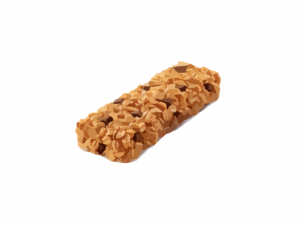6 Ideas to Minimize Your Stress Levels on a Daily Basis

In today’s world of never-ending deadlines, competition and responsibilities, it seems only natural to feel overwhelmed every now and then. Millions of people around the world experience stress on a daily basis, however, much of it is easily manageable. It’s all about taking steps to relieve the pressure and regaining control of your life. Here are some easy, fun and practical ways of minimizing stress levels on a daily basis:
6 Practical Ways to Reduce Stress
#1. Hang out with your pet:
 Did you know that playtime with your furry little friend is one of the best ways to relieve stress? Research has indicated that looking after and playing with pets are excellent ways of attaining social support, reducing stress and improving our physical well-being. It has been documented to lower hypertension, normalize an elevated heart rate and control spikes in blood pressure causing you to instantly feel relaxed. So, the next time you feel stressed out, just take a walk with your cuddly canine or let your cat pet play in your lap.
Did you know that playtime with your furry little friend is one of the best ways to relieve stress? Research has indicated that looking after and playing with pets are excellent ways of attaining social support, reducing stress and improving our physical well-being. It has been documented to lower hypertension, normalize an elevated heart rate and control spikes in blood pressure causing you to instantly feel relaxed. So, the next time you feel stressed out, just take a walk with your cuddly canine or let your cat pet play in your lap.
Having a pet also means that you’ll need to be active, in order to take care of it and the resulting physical activity will help you reduce anxiety yet further. The reason for this is that physical activity increases the levels of serotonin and dopamine (nerve receptors) in your brain.
Related: Some Simple Ways to Improve Your Health
#2. Get a massage:
 Dim lights, alluring aromas and gentle strokes over tense muscles; the concept of a message resonates with relaxation and stress relief. In order to keep your spirits elevated, your nerves calm and body relaxed, treat yourself to a massage at least once a week. Massages are effective in relieving both prolonged as well as daily stress by easing sore muscles and releasing tension. They are also effective in reducing heart rate, lowering cortisol and insulin levels and increasing the production of endorphins, serotonin and dopamine, allowing you to combat stress on multiple fronts.
Dim lights, alluring aromas and gentle strokes over tense muscles; the concept of a message resonates with relaxation and stress relief. In order to keep your spirits elevated, your nerves calm and body relaxed, treat yourself to a massage at least once a week. Massages are effective in relieving both prolonged as well as daily stress by easing sore muscles and releasing tension. They are also effective in reducing heart rate, lowering cortisol and insulin levels and increasing the production of endorphins, serotonin and dopamine, allowing you to combat stress on multiple fronts.
So, what kind of massages are the most helpful when you’re feeling blue? Here is our list of the 3 most blissfully relaxing massages:
- Swedish massage:
By far the most calming massage is the Swedish massage. It encompasses long strokes in line with the direction of blood flow to the heart. Its circular movements over pressure points are aimed at breaking muscle knots and releasing tension.
- Aromatherapy massage:
An aromatherapy massage combines gentle strokes with the aroma of essential oils that induce feelings of relaxation in the brain. Scent particles in essential oils are inhaled during the massage, which influences the limbic section of the brain to send out relaxation signals to the rest of the body.
- Head massage:
A head massage is beneficial as it targets the scalp muscles which possess a tendency to harbor great levels of stress. Head massages reduce stress by enhancing blood flow to organs and loosening up any muscles that may cause neck pain or headaches.
#3. Get guided visualization:
 Guided visualization is a constructive way of channeling out negative thoughts and empowering yourself with optimism, serenity and energy. Guided visualizations entail vividly imagining a place where you feel completely at peace and detached from the present.
Guided visualization is a constructive way of channeling out negative thoughts and empowering yourself with optimism, serenity and energy. Guided visualizations entail vividly imagining a place where you feel completely at peace and detached from the present.
As part of visualization exercises, you might be asked to visualize a healing light, envision yourself accomplishing a goal or repeating affirmations intended to reinforce positive feelings. This may sound simple, however, it is very effective in getting those few minutes of escape from the hassles of everyday life. These help you recharge and have been found to reduce stress by lowering cortisol levels and blood pressure.
Must Read: 11 Inspiring Ideas for Your Morning Ritual
#4. Drink orange juice and chew gum!!
 Two of the yummiest stress reduction tactics include chewing gum and sipping on a rejuvenating glass of orange juice. Oranges are packed with vitamin C which strengthen the immune system and reduces cortisol levels in the body.
Two of the yummiest stress reduction tactics include chewing gum and sipping on a rejuvenating glass of orange juice. Oranges are packed with vitamin C which strengthen the immune system and reduces cortisol levels in the body.
Moreover, recent studies have found that individuals with high levels of vitamin C do not exhibit mental and physical signs of stress when subjected to stressful situations. In addition to this, they also tend to bounce back quicker from stressful situations.
The thing to note here is that the effects of vitamin C are short-term.In order to remain relaxed, you should consume orange juice and other sources of vitamin C at regular intervals during the day.
A slightly unconventional stress relief tactic is to chew on gum, as it has been found to reduce cortisol levels in the body. Other edibles that diminish stress are chamomile tea, green tea and dark chocolate.
Interesting: 8 Interesting Ways to Become Healthy for a Lifetime
#5. Dance to music:
 Stress is a primal bodily response to problematic or harmful situations and instigates a fight or flight response intended to secure our well-being. An inevitable part of life, stress can even make you more productive sometimes.
Stress is a primal bodily response to problematic or harmful situations and instigates a fight or flight response intended to secure our well-being. An inevitable part of life, stress can even make you more productive sometimes.
However, too much stress can cause burnout, anxiety and depression. Music possesses the ability to instantly shift our mood by affecting our subconscious mind and hence breaks the downward spiral caused by excessive levels of stress.
You can use music to elevate your spirits at any point during the day, for example, listen to upbeat music while working in order to lift your spirits. *
To amplify the effect of music, try singing along, as it will help in lowering and regulating breath rate and promotes relaxation.
Follow: 7 Insanely Inspirational Tips to Change Your Health Habits
#6. Unleash your inner artist:
 Did you know that making art can combat stress? When you feel pressured amidst overwhelming deadlines, just grab a paper and pencil and draw your worries away. The repetitive and rhythmic movements of drawing help in synchronizing the eye, mind and body bringing about a state of deep rest known as the relaxation response. The relaxation response has been found to lower blood pressure, pulse rate and respiratory rate.
Did you know that making art can combat stress? When you feel pressured amidst overwhelming deadlines, just grab a paper and pencil and draw your worries away. The repetitive and rhythmic movements of drawing help in synchronizing the eye, mind and body bringing about a state of deep rest known as the relaxation response. The relaxation response has been found to lower blood pressure, pulse rate and respiratory rate.
Sketching, drawing and painting are excellent ways of expressing feelings that may otherwise be difficult to put into words. Therefore, making a gestural drawing via rhythmic strokes or portraying images that evoke buried emotions can be a constructive way to release stress






